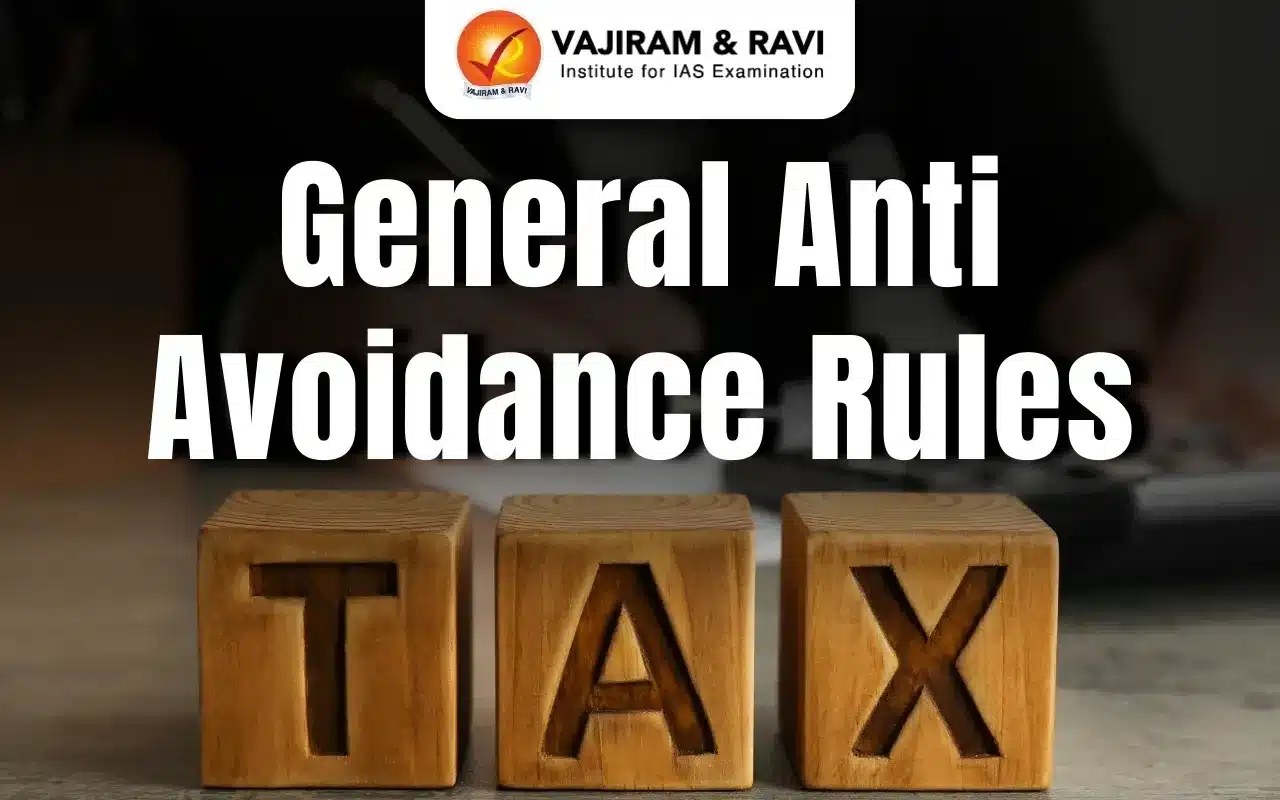General Anti Avoidance Rules Latest News
Income tax authorities may now be able to issue reassessment notices under General Anti Avoidance Rules (GAAR) under the new proposal under the Income Tax Bill 2025.
About General Anti Avoidance Rules
- It is an anti-tax avoidance law in India to curb tax evasion and avoid tax leaks.
- It came into effect on 1st April 2017. The GAAR provisions come under the Income Tax Act, 1961.
- GAAR is a tool for checking aggressive tax planning, especially those transactions or business arrangements that are entered into with the objective of avoiding tax.
- It is specifically aimed at cutting revenue losses that happen to the government due to aggressive tax avoidance measures practiced by companies.
- It is meant to apply to transactions that are prima facie legal, but result in tax reduction.
- Under current rules, reassessment notices where the under-reported income is Rs ₹50 lakh or more, have to be issued within 5 years and 3 months from the end of the assessment year.
- GAAR provisions give wide powers to tax authorities to treat any arrangement or a transaction as an ‘impermissible avoidance arrangement’ (IAA) and re-compute income and consequent tax implications.
General Anti Avoidance Rules FAQs
Q1. What is the anti-avoidance rule?
Ans. Its purpose is to deny tax benefits to any taxpayer that, although complying with a literal reading of the provisions of the tax rules, are not in compliance with the object, spirit or purpose of the legislation.
Q2. What is the difference between GAAR and Saar?
Ans. GAAR is general and it is aimed at targeting tax avoidance broadly. However, SAAR is specific and it assists in tackling particular tax avoidance schemes on a case-by-case basis
Source: TH
Last updated on November, 2025
→ Check out the latest UPSC Syllabus 2026 here.
→ Join Vajiram & Ravi’s Interview Guidance Programme for expert help to crack your final UPSC stage.
→ UPSC Mains Result 2025 is now out.
→ UPSC Notification 2026 is scheduled to be released on January 14, 2026.
→ UPSC Calendar 2026 is released on 15th May, 2025.
→ The UPSC Vacancy 2025 were released 1129, out of which 979 were for UPSC CSE and remaining 150 are for UPSC IFoS.
→ UPSC Prelims 2026 will be conducted on 24th May, 2026 & UPSC Mains 2026 will be conducted on 21st August 2026.
→ The UPSC Selection Process is of 3 stages-Prelims, Mains and Interview.
→ UPSC Result 2024 is released with latest UPSC Marksheet 2024. Check Now!
→ UPSC Prelims Result 2025 is out now for the CSE held on 25 May 2025.
→ UPSC Toppers List 2024 is released now. Shakti Dubey is UPSC AIR 1 2024 Topper.
→ UPSC Prelims Question Paper 2025 and Unofficial Prelims Answer Key 2025 are available now.
→ UPSC Mains Question Paper 2025 is out for Essay, GS 1, 2, 3 & GS 4.
→ UPSC Mains Indian Language Question Paper 2025 is now out.
→ UPSC Mains Optional Question Paper 2025 is now out.
→ Also check Best IAS Coaching in Delhi

















